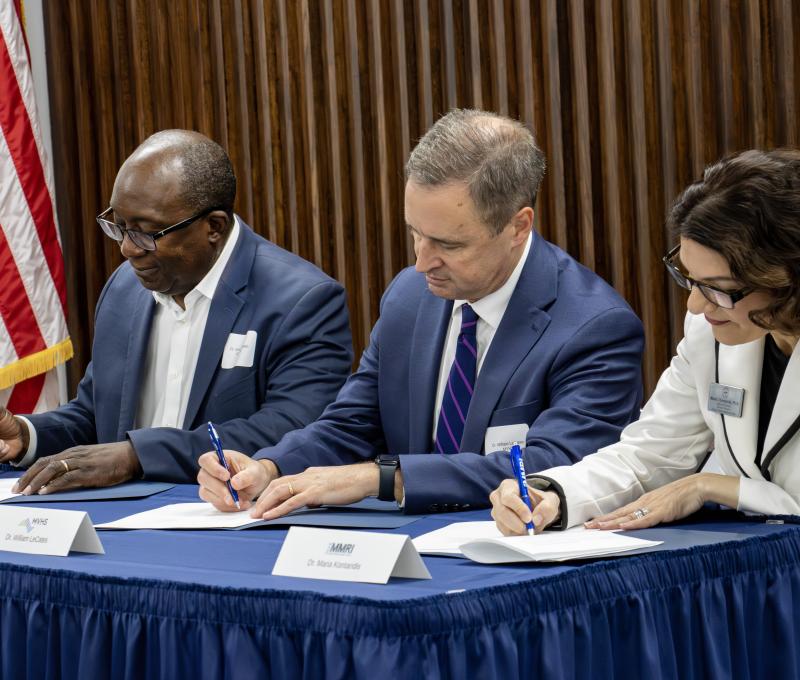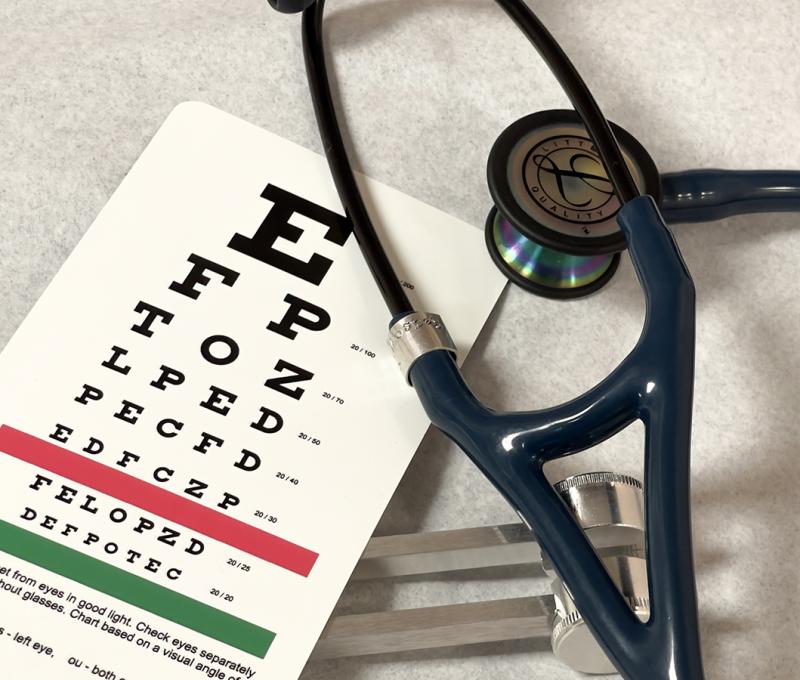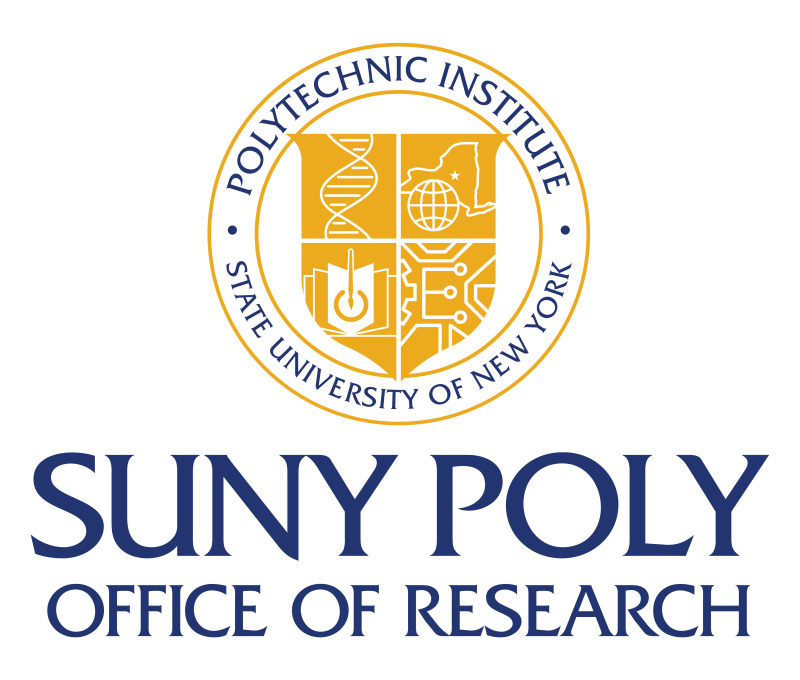News Release: SUNY Poly Professor Awarded $2.4M by National Institutes of Health for Cutting-Edge RNA-Related Research

NIH grant to support SUNY Poly NanoBioscience research focused on RNA, gene expression to develop more effective medical treatments, such as the manipulation of cell functions to target and kill cancer cells, as well as more efficient disease diagnostics
ALBANY, NY – SUNY Polytechnic Institute (SUNY Poly) announced today that Associate Professor of Nanobioscience Dr. Scott Tenenbaum has been selected to receive nearly $2.4 million in federal funding by the National Institutes of Health (NIH) National Institute of General Medical Sciences (NIGMS) for the study of the ways in which an RNA’s structure can determine a cell’s fate, and how delivered RNA can be manipulated to enable functional outcomes in targeted cells when triggered by another RNA from within the cell to provide a nanoscale “kill switch” for targeted cancer cells, for example. This could lead to advanced ways to fight cancer that are complementary to current treatments, which often have a wider array of side effects due to their lack of ability to distinguish between specific cells, in addition to more effective and convenient at-home or point-of-care cancer diagnostics.
“On behalf of SUNY Poly, I am proud that Professor Tenenbaum and the researchers who work in his lab have received this NIGMS grant, which will help to support important research that may provide a path to better disease treatment and diagnosis around the world,” said SUNY Poly Interim President Dr. Bahgat Sammakia. “This latest award for cutting-edge SUNY Poly research is further proof that our excellent faculty and researchers, as well as our advanced laboratory capabilities, help power important research and exciting educational opportunities.”
“I congratulate Dr. Tenenbaum and his research team on receiving this NIH-funded grant that will further enable their nanobioscience-based studies,” said SUNY Poly Interim Dean of the College of Nanoscale Sciences Dr. Alain Diebold. “This research can help us to better understand how RNA, genes, and cells behave and how we can select and target certain characteristics in order to kill harmful cancer cells, for example, potentially leading to additional ways to fight a number of diseases that affect so many people. This type of impactful research is exactly what SUNY Poly is all about.”
The ability to directly target harmful cells and deliver a “kill” mechanism could be used strategically and in tandem with current cancer treatments, such as chemotherapy, for example, to improve cancer survival rates and potentially minimize harsh side effects. Over the next four years, the grant will enable researchers to place RNA into a cell that only becomes functional in cells that make a “trigger” RNA. This structurally interactive RNA, or sxRNA as it is called, is able to focus on a targeted RNA of interest that is only made in cancer cells, for instance. Its other half could be reverse engineered so that when it binds to the targeted RNA in a cancer cell, it leads to the production of a protein which kills the metastatic cell, and in this way, only kills the cells which have a cancer-specific RNA code. In the years ahead, this research could also be used to address other diseases, such as diabetes, by targeting pancreatic-specific RNA as a trigger to turn on the expression of sxRNA encoded insulin.
“I am thankful for the National Institute of General Medical Sciences for highlighting the importance of SUNY Poly’s RNA and gene expression research with the awarding of this significant grant, which will enable us to continue to lay the groundwork for the better understanding of the mechanisms that can be adjusted to produce the desired effect in cells that pose a danger to our health. This could potentially lead to advanced therapies for diseases such as cancer, which affect millions of people,” said Dr. Tenenbaum. “We are excited that this grant will help to support SUNY Poly’s dedicated faculty, staff, and students, and I congratulate the rest of our team for this well deserved recognition from the National Institutes of Health that will both enable basic research and power innovative and more robust technologies.”
“This relatively new area of research presents fascinating possibilities as we seek to advance our understanding of the ways in which we can safely and effectively adjust RNA structure and shape to elicit an expected gene response that can impact cells in extremely specific and advantageous ways, and it is truly exciting that this research, funded by the NIH, is being conducted at SUNY Poly,” said SUNY Poly Graduate Student and project lead researcher, Frank Doyle. “It is also wonderful that this award will provide support for SUNY Poly students to gain the skills necessary to become the next-generation of RNA, gene, and cell-based scientists who will have the opportunity to take this research even further.”
In addition, the research will focus on targeted technological approaches to disease-related care that could also lead to the development of a low-cost, rapid screen, point-of-care diagnostic to look for metastatic relapses in patients. This type of test represents a novel area for healthcare, and could be modeled on how current at-home pregnancy tests work, except this test would be able to discern unique RNA qualities that are present in a given sample, allowing patients to easily see when they should seek further care from their oncologist.
The sxRNA-based research will also support hands-on nanobioscience-focused educational opportunities for several SUNY Poly students and post-doctoral researchers, as well as a team of technicians who will utilize the institution’s cutting-edge facilities and lab resources to advance understanding in this field.
####################
About SUNY Polytechnic Institute (SUNY Poly)
SUNY Poly is New York’s globally recognized, high-tech educational ecosystem. SUNY Poly offers undergraduate and graduate degrees in the emerging disciplines of nanoscience and nanoengineering, as well as cutting-edge nanobioscience and nanoeconomics programs at its Albany campus, and undergraduate and graduate degrees in technology, including engineering, cybersecurity, computer science, and the engineering technologies; professional studies, including business, communication, and nursing; and arts and sciences, including natural sciences, mathematics, humanities, and social sciences at its Utica/Rome campus; thriving athletic, recreational, and cultural programs, events, and activities complement the campus experience. As the world’s most advanced, university-driven research enterprise, SUNY Poly boasts billions of dollars in high-tech investments and hundreds of corporate partners since its inception. For information visit www.sunypoly.edu.
Research reported in this publication was supported by the National Institute Of General Medical Sciences of the National Institutes of Health under Award Number R01GM125870. The content is solely the responsibility of the authors and does not necessarily represent the official views of the National Institutes of Health.








